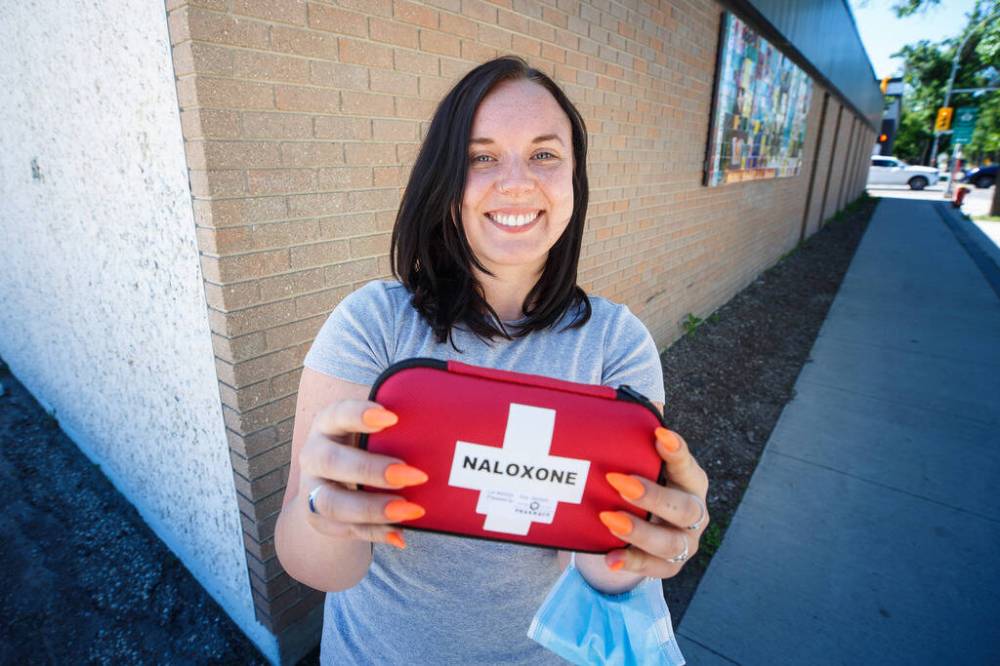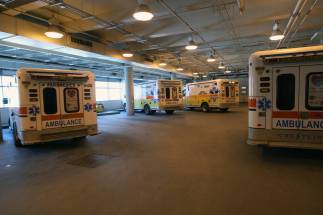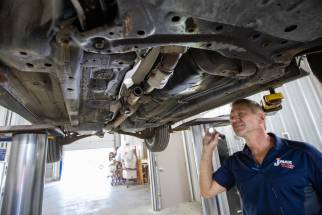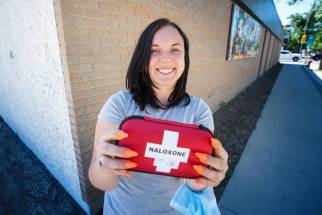Life-saving sounds of summer Winnipeg health centre provides naloxone training for festival attendees
Read this article for free:
or
Already have an account? Log in here »
To continue reading, please subscribe:
Monthly Digital Subscription
$19 $0 for the first 4 weeks*
- Enjoy unlimited reading on winnipegfreepress.com
- Read the E-Edition, our digital replica newspaper
- Access News Break, our award-winning app
- Play interactive puzzles
*No charge for four weeks then billed as $19 plus GST every four weeks. Offer only available to new and qualified returning subscribers. Cancel any time.
Read unlimited articles for free today:
or
Already have an account? Log in here »
Hey there, time traveller!
This article was published 26/06/2022 (913 days ago), so information in it may no longer be current.
Sunscreen? Check.
Water? Check.
Hat? Check.
Naloxone? Check…?
Manitobans hitting the festival circuit this year are being encouraged to pack the life-saving medication used to temporarily reverse the effects of opioids — and a new program is helping them do that.
Nine Circles Community Health Centre recently launched Never Without Naloxone, a free training and pickup program geared towards festival attendees.
Madeline Rae, a health educator at Nine Circles in Winnipeg, said naloxone training is essential but particularly important during the festival season.
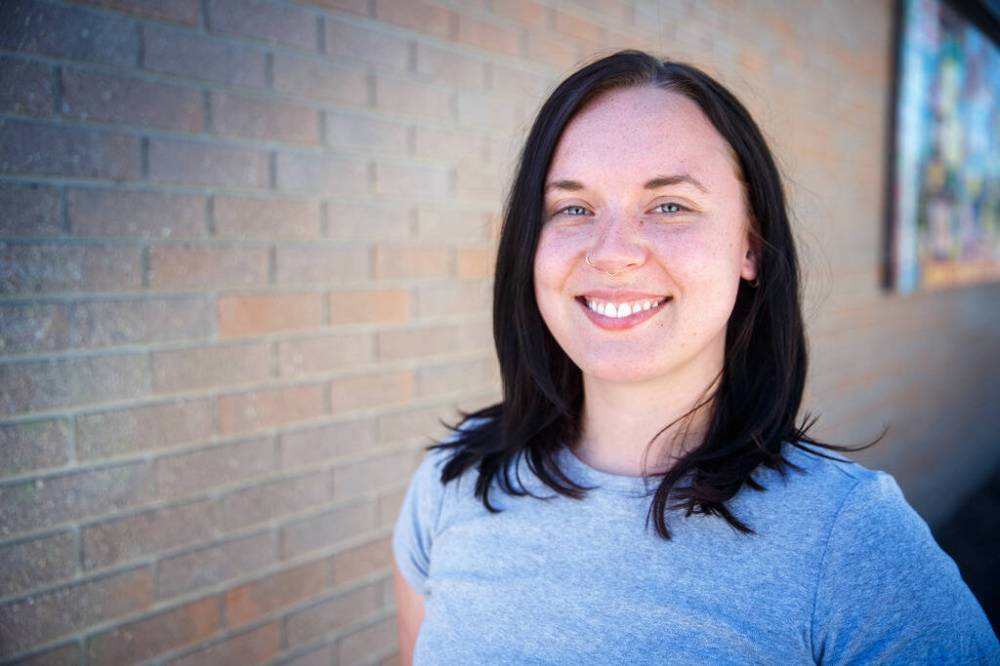
Since the West Broadway health centre announced it would be holding the workshops on social media earlier this week, many have already dropped by.
“The reality is, there’s going to be a lot of drug use at these different festivals,” Rae said. “Part of harm reduction is supporting and loving folks, even if they choose to use drugs, and helping them do that as safely as possible.”
Naloxone training at Nine Circles only takes five to 10 minutes and can save lives, Rae said.
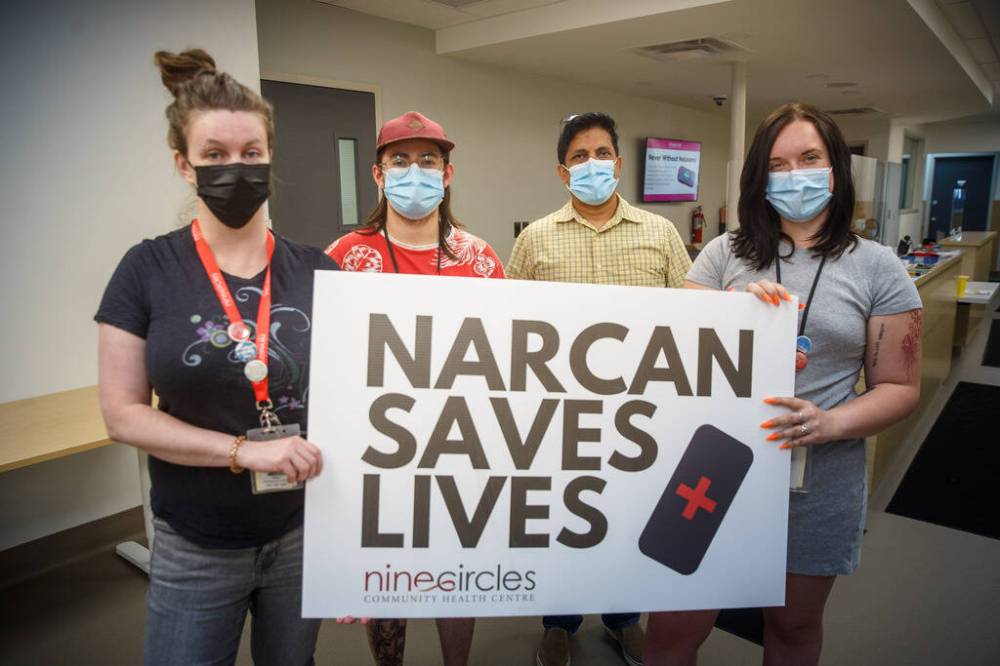
While opioids aren’t the most frequently used drugs at festivals, Rae said other drugs may be cut with them without users knowing.
“Many drugs can be cut with opioids like fentanyl,” Rae said. “Especially in a festival season, with all different types of drugs being used, even if folks are taking drugs that they don’t expect to have opioids in, sometimes they can.”
Lynne Skromeda, executive director of the Winnipeg Folk Festival, said the summer event is equipped with trained security and first aid volunteers who are accessible to festival attendees, as well as a safer spaces policy.
s
“I want people to know that (the festival) is, in general, a safe environment, but if there are issues, we are an organization that has well-trained people that are available and able to deal with things,” Skromeda said.
The festival’s security staff receive more than 120 hours of training, including non-violent crisis intervention, drug awareness and conflict de-escalation, Skromeda said.
However, training and supplies are just a fraction of harm reduction.
Veda Koncan, projects manager at Manitoba Harm Reduction Network, said stigma can also be a barrier to receiving care.
“We know that when substance use happens in secret and is stigmatized, folks are not able to access the resources they need to use safer,” Koncan said. “We’re still at a place where a lot of festivals are not acknowledging that people use drugs there.”
“We know that when substance use happens in secret and is stigmatized, folks are not able to access the resources they need to use safer.” – Veda Koncan
In 2020, Manitoba Harm Reduction Network released a report detailing how harm reduction could be improved at Manitoba festivals. Recommendations included providing testing supplies, recovery zones and workshops for attendees.
After a two-year festival season hiatus, both Koncan and Rae hope to see more harm reduction measures in action.
“I feel like some festivals are hesitant to do this work because of the public relations stuff around it, but nothing is going to be worse for public relations than having people get hurt,” Koncan said.
“Harm reduction is evidence-based, it is proven to save lives, it is proven to be cost-effective,” Rae said. “It really does save so many people.”
cierra.bettens@freepress.mb.ca
